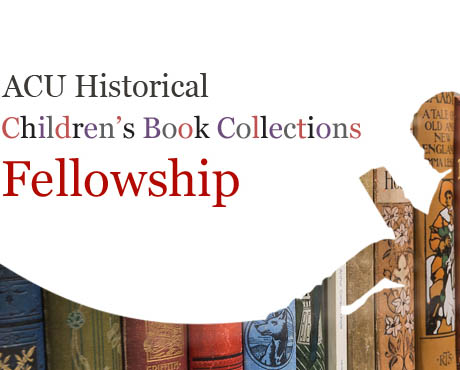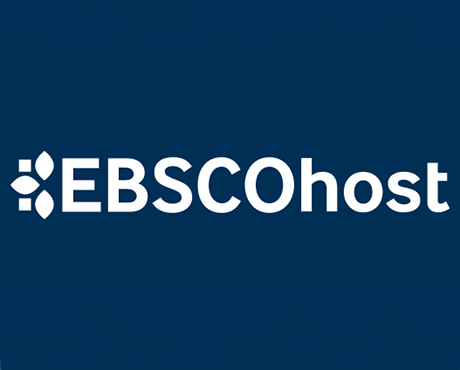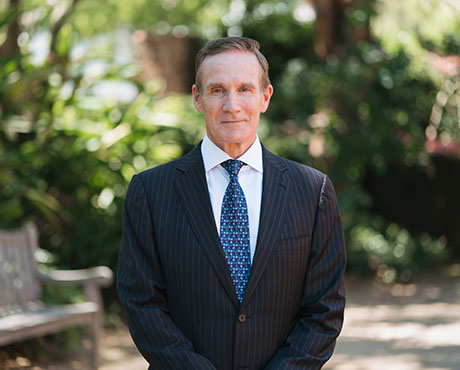
Research partnerships for the common good
News 23 SeptemberA message from Interim Executive Dean, Faculty of Education and Arts, Professor Phil Parker
19 August 2020
Share
To celebrate the anniversary of the publication of St John Paul II’s Apostolic Constitution Ex Corde Ecclesiae, Deputy Vice-Chancellor (Coordination) Professor Hayden Ramsay shares his reflection on what this pivotal document means to ACU and Catholic higher education.
St John Paul II wrote more than any Pope ever has, or probably ever will. For Catholic universities, he issued on 15 August 1990 an Apostolic Constitution. This is the highest form of law-making document the popes author. But unlike legislative documents of the state, this document of the Church – “Born from the Heart of the Church” or Ex Corde Ecclesiae – doesn’t focus narrowly on laws but ranges widely through theology, history, academic life, administration, pastoral practice and the requirements of Catholic higher education in a multifaith world.
It is a great treasure of the long papacy of John Paul the Great and an entry point to understanding ACU for staff of all faiths and traditions.
Universities as we know them evolved around a thousand years ago from the Church’s monastic and cathedral schools. People sometimes think medieval academics must have all thought in the same way and had no other perspectives open to them except for what the Church said. In fact, from Jesus Christ’s time on earth onwards, the Church was both learning from and contributing to the intellectual debates of Judaism, then of Graeco-Roman philosophy, and later the work of the great Muslim commentators and philosophers.
Catholic faith has always been an intellectual faith – one in constant dialogue with all thought traditions open to reason and the interchange of ideas. Hence, the claim that we value both faith and reason, and that these are not only consistent but require one another if they are to function fully.
There is easily a program of 10 seminars in Ex Corde Ecclesiae, exploring its major claims and what they mean for our teaching and learning, research, strategy, communications, marketing, staffing, finance, curriculum, governance and administration and pastoral care. Perhaps there is something to be said for each Catholic university running such a seminar program for all its staff. Here, I will focus on just two ideas.
At the very opening of the document John Paul reminds us that Catholic universities must make an intellectual effort to unite two different things: the search for truth, and the certainty of already knowing the source of truth, Jesus Christ. How can we search for what we already know; isn’t that a contradiction or a limit on our academic freedom?
Well, no. Every search for truth happens within some sort of framework. Every search presumes a clear enough sense of the goal to guide the search, basic rules for the search, assumptions about the world in which that search takes place. Searching for a needle in a haystack only works if you know what you’re after, and why, and how best to get it, and what to watch out for, and how it relates to all your other searching, and so on.
For a Catholic university, the framework of understanding that guides and structures is the life and teaching of Jesus Christ, taught within the Catholic Church. It neither imposes on any discipline or demands religious faith – any more than the mission of any other university imposes on a discipline or demands faith in its vision. Every university – and every thinking person – lives with the ambiguity of both searching with fresh eyes and searching in the context of a basic philosophy of the world you already accept.
And why should that framework be Jesus Christ? A simple answer is that this is the sort of university at which we freely choose to work. But a better answer would look at the focus on intelligence within the faith which Christ and the tradition erected in his name propose. His life and teaching and the academic tradition back to the early Church Fathers and mediaeval scholars make up a university on earth even before there were Chancellors to establish them.
Not all of us believe in Jesus Christ’s divinity but I have yet to meet someone who rejects his humanity. This was quite simply the most beautiful life and its message of active charity and courageous contemplation of life’s most confronting questions is irresistible.
Secondly, I’d like to say something at this time about the document’s focus on the type of community that is a university. The first universities were communities of scholars – both teachers and students who were engaged in a common enterprise that they thought not only worthwhile but genuinely exciting. The academic project inspired who they were and what they did together. And they were inspired by those descriptions of the early Christians who shared what they had in common – not just their possessions but their searching and finding, their little wisdom, their big enthusiasm. Sharing the life of the mind with each other may not be how those who fund us and regulate us primarily regard universities today, but it is our genesis.
Those first universities, like those first Christian communities, knew that this ‘vocation’ is not always easy, that it requires a certain kind of character that is both tested and formed by the unique kind of community a Christian university is, and that it requires the academic, emotional and spiritual supports that only such a community can provide. With societies and characters tested in 2020 as rarely before, Ex Corde Ecclesiae reminds us that truth and community sustain each other and conjoined they can heal us from every ill.
Professor Ramsay’s piece is being published as part of the recent Ethics Hub launch, which coincided with the 30th anniversary of Ex Corde Ecclesiae.

A message from Interim Executive Dean, Faculty of Education and Arts, Professor Phil Parker

The library is supporting the ACU Historical Children’s Book Collections 2025 Fellowship. It is an opportunity to conduct research on our historical collection of children’s books, located at St Patri...

On 24 June ACU will transition to the new EBSCOhost. This will result in a new look and feel across some of our most popular databases. Learn more about the changes and what action may be required of ...

Advance your career in teaching and learning with the Graduate Certificate in Higher Education. Enrol by 22 June to get started in Professional Term 5.

Viva Engage is here. Access it easily via Microsoft Teams.

Include an additional survey item in the Student Evaluation of Learning and Teaching (SELT) survey for units that are offered in ACU Online Term 2 (202536).

A new Adjunct and Honorary Titles Policy and Procedure has been approved and is now in effect at ACU.

Teaching staff are encouraged to check their units have been correctly linked to their names for the Student Evaluation of Learning and Teaching (SELT) surveys in upcoming teaching periods.

ACU has three student modules: the Academic Integrity, Respectful Relationships, and Protecting our Children modules. Semester 1 students must complete their modules by 1 July to access their results ...

Please be aware of the following changes to payroll processing dates.

A message from the Chief Operating Officer Patrick Woods.

As part of Student Administration's commitment to service excellence, AskACU will be running on-campus re-enrolment drop-in sessions in July, while CMAS enhancements will improve information available...

The Student News and Events bulletin is sent to all students, nationally, and includes a broad cross-section of news, announcements, events and stories from across the university. The May edition is o...

Say goodbye to Workplace and hello to Viva Engage. Learn about our new community structure and all-staff community.

An update from the Executive Dean of Law and Business Professor Andrew O'Neil.

A reminder to all academic staff that the mandatory Notice of Intent, for those intending to apply for promotion in the 2025 round, must be submitted by 11.59pm this Friday (30 May).

Expect a few email notifications as we prepare to welcome you to Viva Engage next week.

Include an additional survey item in the Student Evaluation of Learning and Teaching (SELT) survey for units that are offered in Professional Term 4 (202547).

Register for these 15-minute sessions to learn more about the variety of online researcher profile platforms and what is involved in setting up, linking and updating your profile.

Lecturers-in-charge can make a direct determination of Poor Academic Practice (PAP) for students who engage in minor forms of academic misconduct. Learn why they can be valuable to staff and students.
Visit Service Central to access Corporate Services.